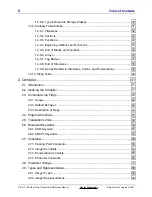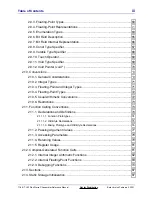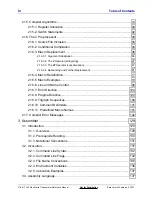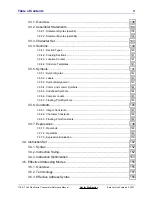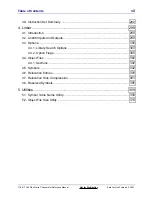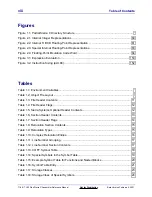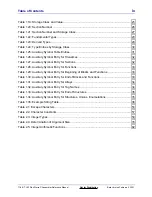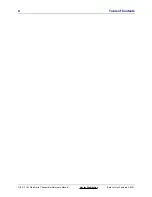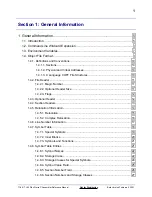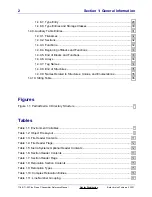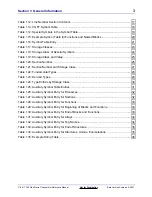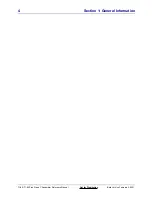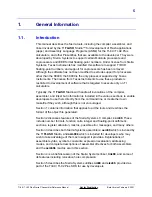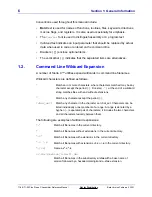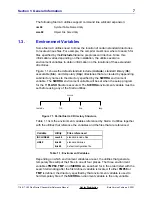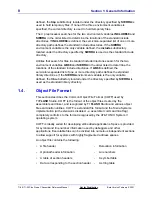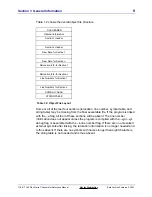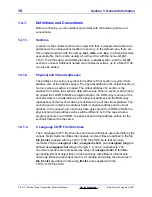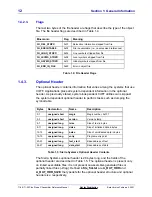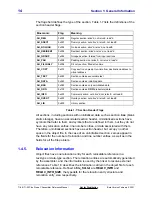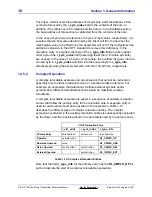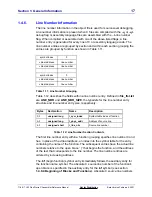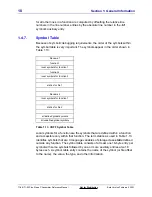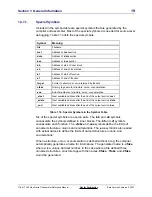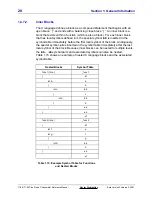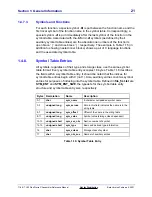
6
Section 1: General Information
TI-89 / TI-92 Plus Sierra C Assembler Reference Manual
Not for Distribution
Beta Version February 2, 2001
Conventions used throughout this manual include:
•
Bold text is used for names of functions, routines, files, keywords, directives,
macros, flags, and registers. It is also used occasionally for emphasis.
•
The
Courier
font is used to distinguish assembly or C program text.
•
Italicized text indicates an input parameter that should be replaced by actual
data when used in code or entered on the command line.
•
Brackets ( [ ] ) enclose optional items.
•
The vertical bar ( | ) indicates that the separated items are alternatives.
1.2.
Command Line Wildcard Expansion
A number of Sierra C™ utilities expand wildcards in command line filenames.
Wildcard characters are defined as follows:
*
Match zero or more characters, where characters matched may be any
character except the period (
.
) . Dot-star (
. *
) at the end of a wildcard
string matches files with and without extensions.
?
Match any character except the period ( . ) .
[
char_set]
Match any character in the character set
char_set. Characters can be
listed individually or as members of a range. A range is denoted by a
hyphen (
-
) separated pair of characters; it includes the two characters
and all characters lexically between them.
The following are examples of wildcard expansions:
*.*
Match all filenames in the current directory.
*
Match all filenames without extensions in the current directory.
*.?*
Match all filenames with extensions in the current directory.
*.c *.s
Match all filenames with extensions of .c or .s in the current directory.
*.[cs]
Same as *.c *.s
c:\doc\version[0-9a-f].doc
Match all filenames in the subdirectory c:\doc with a base name of
version followed by a hexadecimal digit and a .doc extension.

